According to various sources (Billion Year Spree by Brian Aldiss – later Trillion Year Spree, Wikipedia, etc), antecedents to science fiction (scientific romance – scientific fiction – scientifiction – science fiction) can be traced back to the 2nd century and Lucien of Samosata’s A True Story. For some historical perspective, Marcus Aurelius was Emporer of Rome.
Additional precursors can be found in the 10th century, the 13th, 15th, 17th, 18th and 19th centuries, the latter notable for the publication of Frankenstein, or The Modern Prometheus by Mary Shelley, a story that is arguably considered the first true “science fiction – like novel”. (No doubt more will be uncovered from these eras as our examination of the genre continues to expand and acknowledge its international and multi-cultural boundaries.)
Titles of works prior to that which some readers may be familiar with are: One Thousand and One Nights, The New Atlantis, Micromegas, Hans Pfal, From the Earth to the Moon, The Time Machine, The Machine Stops…some of which are very old and yet are still read and referenced today.
Not so old at least in terms of the passage of time are two recent essays on the subject of the Science Fiction Canon, a mythical creature that hides under the beds and in the closets of unsuspecting adolescents. Emerging in the late, dim hours, mouthing threats of adolescent horrors too unspeakable to speak, it forces them to read Cosmos, Atlanta Nights, and various selections from Pulp Fiction Magazines until their eyes bleed and their brains run out of their ears.
The essays in question are John Scalzi’s Oh, Christ, Not the Science Fiction Canon Again and Camestros Felapton’s Canon and Campbell. You would not be wrong if you assumed that the recent Hugo Awards ceremony was at least partially responsible. We’ll take a pause here to allow you to read those fine essays.
***
Back? Great.
Felapton’s piece is nicely summed up by the author himself in the opening:
The short version of my take on all this is that canon is important but it is not THAT important. Put another way, there are books of great historical significance and there exactly zero books that you must read.
Canonical books and writers serve two roles:
- They can act as kind of metonyms for time periods, literary movements or sub-genres.
- They make it easier to talk about current works by providing common points of comparison.
The second point implies a populist conception of canon where it isn’t the critical acclaim of a work but its popular influence. For example, I think it is an easy argument to make that when looking at contemporary fantasy Avatar: The Last Air Bender is a key text, even though it was a kid’s cartoon (all be it one that was critically acclaimed as a kid’s cartoon).
Scalzi’s posting also summarizes in the beginning:
Ugh, we’re talking about the “canon” of science fiction literature, again, for reasons (most imminently the recent Hugo award ceremony and its fallout), and whether, basically, newer writers and readers should and must slog through a bunch of books in the genre that are now half a century old at least, from a bunch of mostly male, mostly white, mostly straight writers who are, shall we say, not necessarily speaking to the moment.
…
As a practical matter, the science fiction “canon” is already dead.
There are at least two generations of adults now, and two generations of genre writers, who didn’t grow up on it and fundamentally don’t care about it. Long gone are the days where a kid’s first introduction to the genre was a Heinlein or Asimov novel, smuggled out of the adult fiction section of the library or bookstore like samizdat. The Kids These Days got their start reading genre through the YA section and grew up on Rowling and Collins and Westerfeld and Black and Pierce and Snicket, and got their science fiction through film and TV and video games and animation and comics as much as if not more than from books.
I repeat: They don’t care about “the canon.” Why should they? What they grew up with was sufficient for what they needed — to be entertained when they became readers and fans, and to be inspired if they became creators and writers.
The History of Science Fiction by Ward Shelley is available as a poster.

They are both right, at least in the sense that what they posit as canon and the way(s) in which it is used socially is supported by their contentions.
But is anything really hiding under beds and in closets? Is it possible that there is some force extant on the planet that can force people to read something?
The last time I voted on the Hugo Awards (the most current one), I did not have to qualify as a voter by passing some canon litmus test. I’ve never (not once in 47 years) been denied access to a convention on the grounds of unfamiliarity with canon. No one has ever tried to insult me by saying “You’ve not mastered THE CANON, you aren’t a Fan!”
No, not once.
Now, I have been shamed from time to time by fellow fans who were disappointed that I had not read (or expressed no interest in) reading a particular favorite tome that they obviously thought was an important contribution to the genre (one of the criteria Camestros details for inclusion in the Canon), but not only is that lack easily rectified, it’s mitigated by the fact that I have read (and enjoyed, and frequently re-read) a very large percentage of those works regarded (by those who are interested) as foundational, influential works that contributed to the advancement and development of the genre.
I think this “argument” is Much Ado About Nothing (to quote an old work), one that is being used as a proxy for the presumed divide between older fans and newer generations. An argument we need not have.
Gary Westfahl has argued that in order to establish a genre, you need to define the elements that make it unique, and a large contributor to identifying those elements is the corpus of work that one presumes contains those elements. The way that one work is identified as belonging is by comparing it, through critique, with the corpus. One can say “this is, is not science fiction”, but to go beyond that simplistic statement, one needs to answer the question “why”, and the only way to do that is to refer to the elements it does or does not share with the genre. It’s self-referential, but those elements are defined by the body of work sharing them that have gone before. This is the place where sub-genres come from – works that fit the definition but which emphasize or incorporate elements adjacent to or outside of the definition. (You can’t argue “Science Fiction” vs “Science Fantasy” without having some kind of yardstick for comparison.)
There’s also the contention that Science Fiction is a continuum, an on-going, centuries old dialogue of call and response, writers reacting to published works and offering up variations, counter-arguments, expansions in response. “We stand on the shoulders of giants” is an expression often used to acknowledge that without the work perfomed by previous generations of authors, editors, publishers, artists and fans, contemporary SF would not be where it is today.
That latter is often negatively receieved these days, and it shouldn’t be. Much is made about contemporary SF rejecting the all white heterosexual european male colonialist based SF of the 40s, 50s and 60s – but of course without the existence of such a body of work, there would be nothing to react to or reject. Call it a benign correction as the field expands to incorporate diverse voices or call it a war against patriarchy, in both estimations there is something that is being addressed and re-evaluated (if not pushed back against and excoriated).
Is there an SF Canon? Yes. But is it a moving scale? Is it inviolate? Is it mandatory?
No, no and no.
I argue that “the canon” is everything that has gone before, good, bad and indifferent, lauded or largely forgotten, influential or ignominious.
The moving scale idea (canon is comprised of those works within the surround of the contemporary reader) ignores the continuum of historical development. Would Gernsback have created Amazing Stories if he had not been influenced and inspired by Poe and Verne and Wells? Would Clayton have introduced Astounding if Amazing wasn’t drawing readers? Would Street and Smith have purchased the magazine if it wasn’t economically viable? Would F. Orlin Tremaine have hired John W. Campbell Jr. if John had not been inspired to write by the stories he’d read in Amazing? Would the genre have gone in the directions it did without Campbell’s editorial influence (and the reactions to that influence?) Would we have argued that his name on a prominent award was inappropriate if all of that and more had not gone before? I think not.
It’s not inviolate either: As the field has opened up to include SF not written in the West, not originally written in English, we discover that not only is good science fiction being written in other languages, the science fiction from those disparate cultures and countries also has a history of development. Not to mention the new works being produced every day.
Is it mandatory? Of course not. While I might consider it desireable that everyone I talk about SF with would be familiar and enthusiastic about everything that I have read (and consider important, influential, seminal and foundational), it would result in poor conversation (Oh, I loved that! Yeah, me too!) and little room for discovery. (Plus, I lack the means to make the study of the history of science fiction through its fiction, 2 AD – 2020 AD Inclusive a compulsory course in public and private schools throughout the nation…and my own experiences with mandatory reading strongly suggest that it would have a negative impact on their government-mandated love of the genre.)
Consider this. There are two ways that the phrase “new book” can be received. New Book can mean a newly released, never before published work, about which the readers and critics know nothing, or, New Book can mean “new to the reader”. Anything in the canon that an individual has not read is new to them and potentially offers them the same opportunity for discovery and enjoyment as a new contemporary work does. In that respect, there’s no difference between a book of the canon and one that may come to be included in the canon.
The SF Canon is there to be used – or not – but it is there and its influence on the genre is evident.
Steve Davidson is the publisher of Amazing Stories.
Steve has been a passionate fan of science fiction since the mid-60s, before he even knew what it was called.


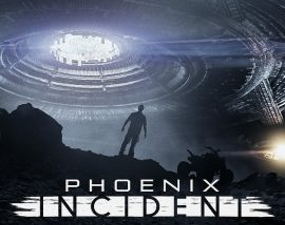
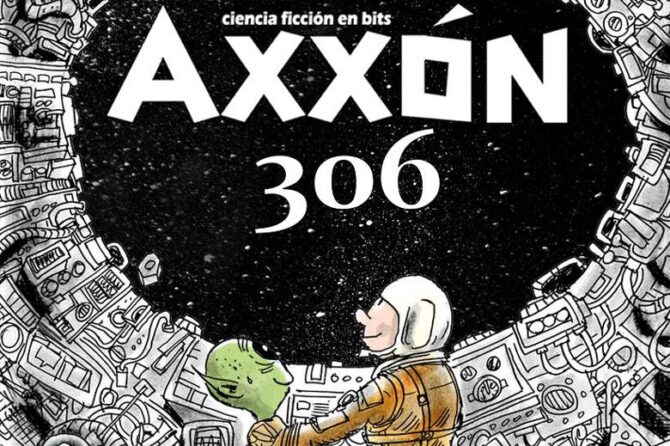


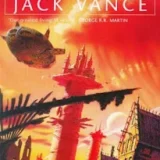
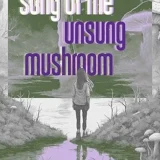

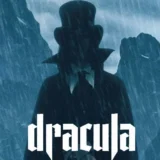

A very interesting issue. I myself think there will always be value in reading works that thoroughly present an important idea to the world for more or less the first time (or at least for the first time it sticks; when it was _not_ yet a cliché), rather than give it but brief mention or assume common knowledge of it and go on from there. Also, likelier that more people would have heard of such a pioneer book, than the nth or n+1th to hang a plot on the same gimmick. Finally, it does one’s mind good to read a book from another age & culture, to give us a fresh and perhaps critical look at our own.
Good to see you at WWC, thanks for attending the panel!
Yes, I agree; and I think more so for those who plan on writing in the genre: but of late I have begun to think that it takes a dual interest in SF and things historical to create the kind of reader that wants to delve into non-contemporary works.